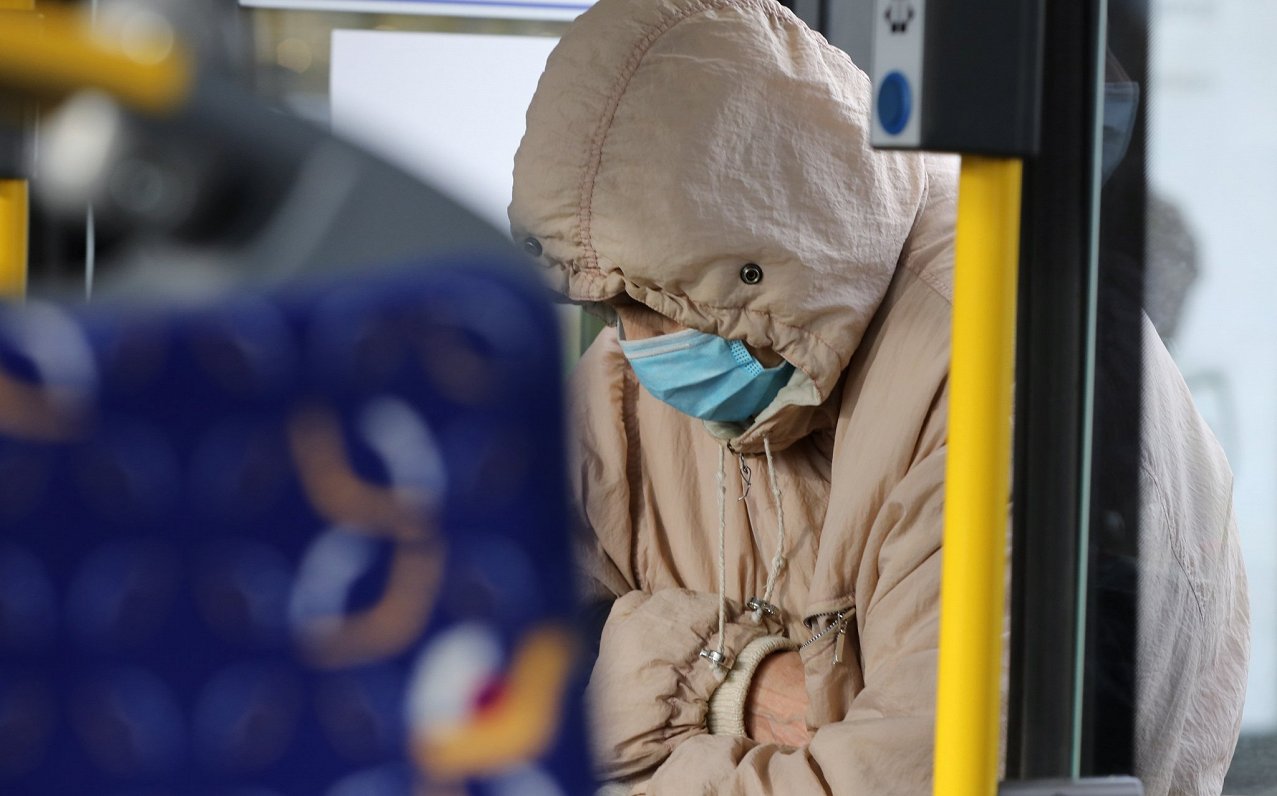An unknown virus, self-isolation, quarantine, emergency – it is all completely new, unfamiliar to the society. In such times of crisis, people are particularly actively seeking an authority, or a trusted person, who could answer the question - what do we do now?
A few days ago, LSM published a part of the LTV and SKDS study, which showed public attitudes towards COVID-19.
In the second part of the study, 1000 respondents were asked to write down a name of someone who said they trusted the most. The first three most trusted, both in the spring study and now, are almost unchanged. The general public trusts the infectologist Uga Dumpis, then epidemiologist Jurijs Perevoščikovs, then – medics, doctors, epidemiologists and scientists in general, without naming any individual personality.
The former head of the Association of Physicians, Pēteris Apinis, also enjoys great authority, coming fourth. Next comes Health Minister Ilze Vinkele, who is trusted by 4.3% of the respondents. Prime Minister Kariņš comes only in eighth place. Mask-opposing MP Aldis Gobzems is eleventh.
A large number of respondents, around 20% , do not trust anyone in this matter.
The Russian-speaking audience have listed Russian and Ukrainian TV-doctors - Aleksandr Mjasnikov (Александр Мясников), Yevgeny Komarovsky (Евге́ний Оле́гович Комаро́вский), Elena Kramarenko and Aleksey Vodovozov (Алексей Водовозов) who could be unfamiliar to many, but in the Russian-understanding part of the audience the video messages of these people, are very popular and actively distributed on social networks. Therefore, these foreign Youtube-doctors enjoy a similar or even greater authority than Latvian Emergency Medical Service (NMPD) Director Liene Cipule or the country's president, Egils Levits.
In the spring study, the Belarusian President Alexander Lukashenko was also highly ranked, but he no longer is. Donald Trump and Vladimir Putin are still on the list.
The study asked respondents to evaluate the work of local officials and institutions. The epidemiologist Perevoščikovs and the infectologist Dumpis are assessed most positively, followed by NMPD Director Cipule. And only then comes a politician – Prime Minister Karins. The head of government is far behind the first three. The Health Minister Vinkele and President Levits follow. The work of Finance Minister Reirs, Minister for Education Šuplinska and Welfare Minister Petraviča were assessed negatively.
Regarding institutions the public trusts, the result is not surprising – most trusted are specialists from NMPD and SPKC. Only then comes Ministry of Health, but the Cabinet and the Saeima are in the last places. When compared to spring data, the layout is the same, but public confidence in all these institutions has dwindled.
Experts explain that this is not so much due to errors in the fight against coronavirus as to ill-considered initiatives in the context of next year's budget.
“Even in peace times, some of the public feels unsafe. This is less relevant to the public sector, where a solid salary is paid each month. But it looks different in the private sector. Now we have COVID-19 with a great deal of uncertainty(..) and in this time, opening up debate on taxes, starting to scare people, is very unreasonable. There is no doubt that this has been one very important aspect of why trust in the government with COVID is what it is,” said the director of the SKDS, sociologist Arnis Kaktiņš.
Associate professor, philosopher Vents Silis said that the number of infected people and deaths in Latvia are extremely low, for which the Latvian medical care system is to be thanked. “In fact, the current situation of Latvia is a direct result of medical work. The current government can thank the medics for their existence, for whose salary increases they once again did not have the funds. Government is more interested in looking well in their own eyes. They strangely care more about saying we do what we can rather than realistically do something. This could be particularly felt in the way taxes were raised and attitudes towards cultural workers whose incomes are suffering even more,” said Sīlis.





























